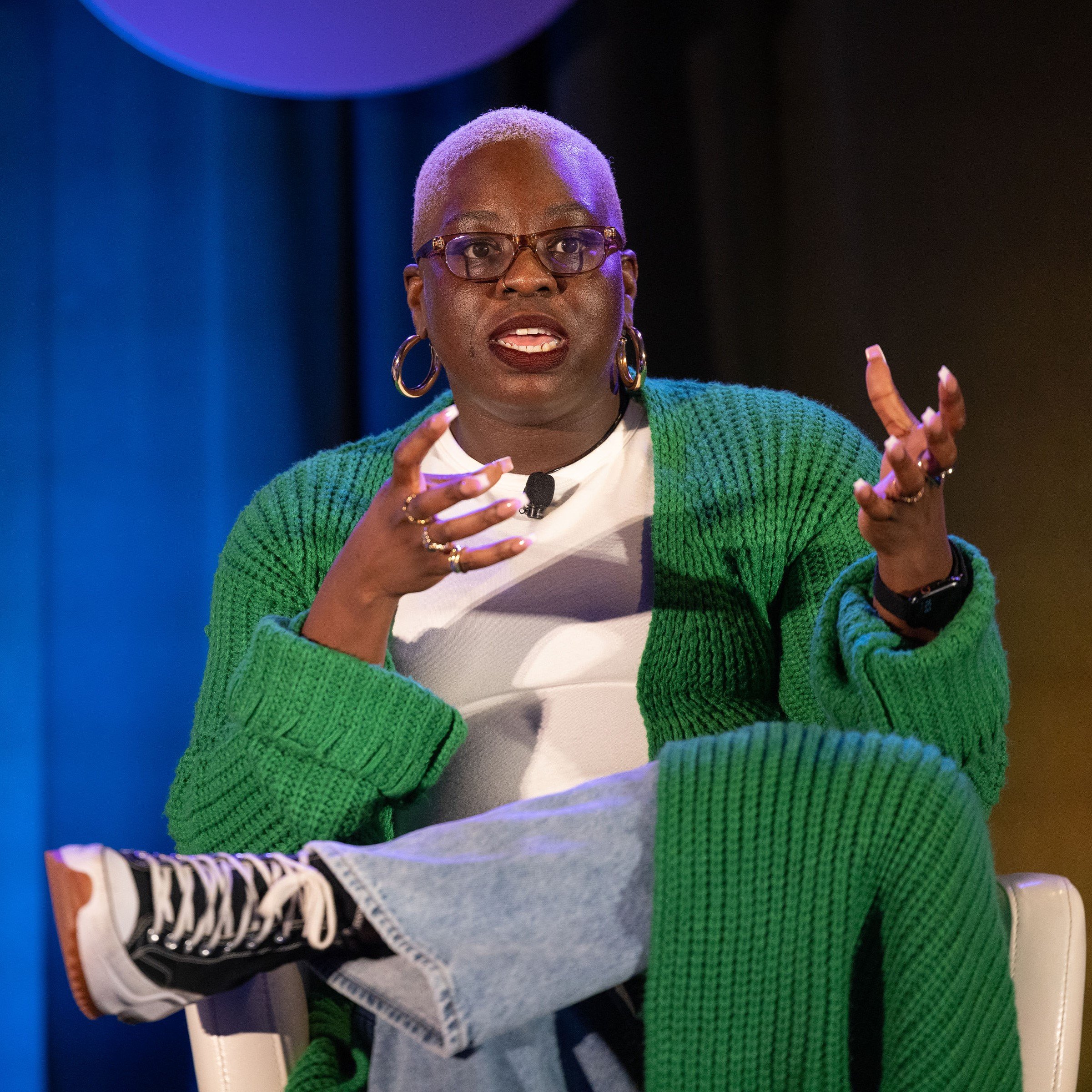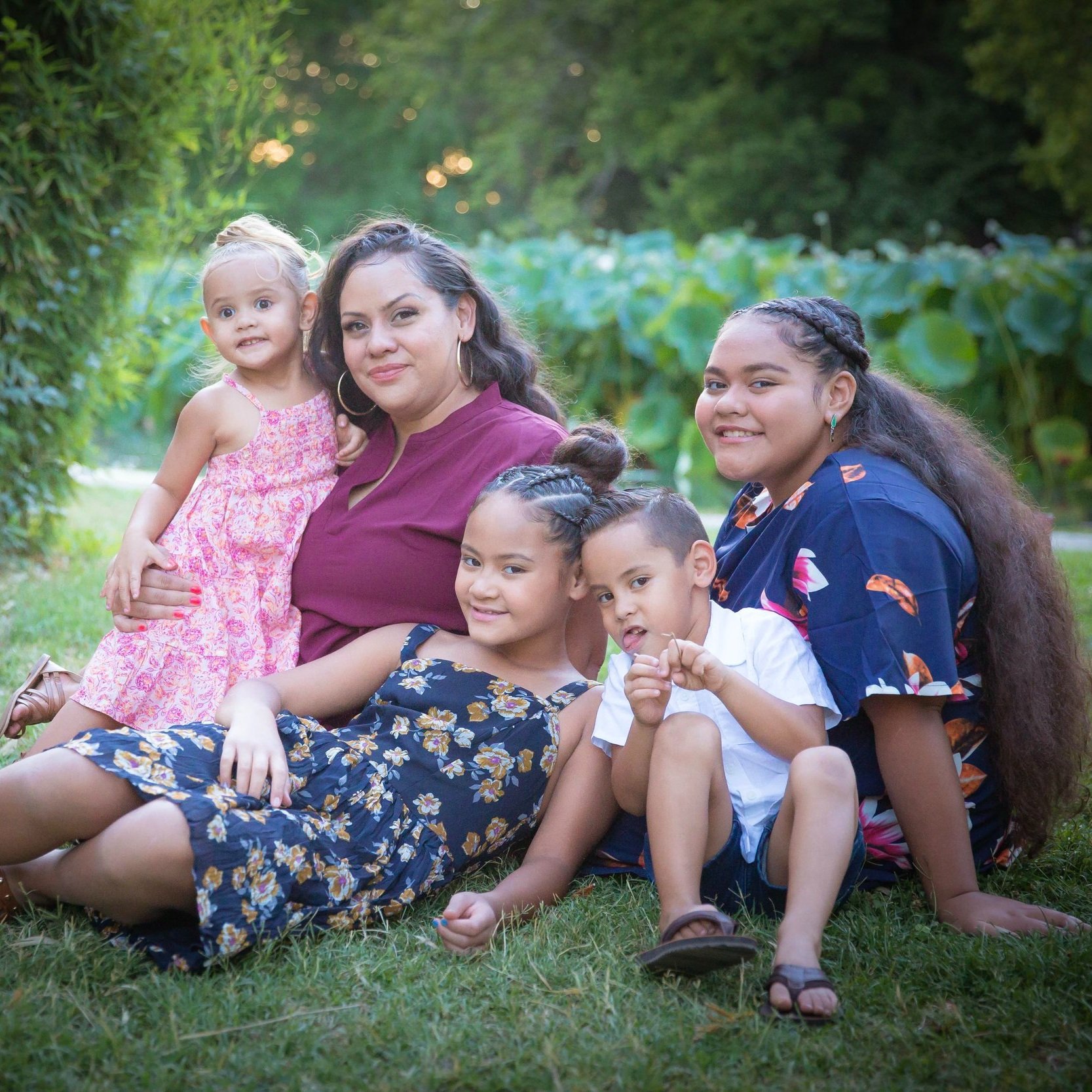Count Us: Generation Hope’s Efforts to Mandate Student Parent Data Collection in Maryland
Marlee Breakstone, Senior Policy Manager
April 2024
In Maryland, the 446th session of the General Assembly convened in Annapolis from January 10 to April 8, 2024. As a result of Generation Hope’s advocacy efforts, House Bill 0463 was introduced in the state legislature (January 22, 2024) and heard before the House Appropriations committee (February 27, 2024). If passed, HB 0463 would have required all public higher education institutions in Maryland to collect and annually report data regarding the parental status of students.
Based on national data, we can estimate that more than 70,000 Marylanders are currently parenting while attending college part- or full-time. Even though more than one in five college students in the United States are raising children while attending school, parenting students are largely unseen and underserved by higher education institutions, data analysts, and policymakers. Our advocacy work sought to solve that problem.
Our Involvement
Generation Hope worked with a coalition of policy professionals, researchers, technical assistance providers, higher education leaders from two- and four-year institutions and an HBCU, students, and more to advocate for better data collection on the parental status of college students. We are proud of the progress we have been able to make.
We are grateful to all who worked with us to champion this bill, especially members of our Student Parent Advocacy Alliance (SPAA). Working on this bill gave Alliance members — all current and former student parents — an opportunity to gain new advocacy, storytelling, and leadership skills. Tamara Sahin — a student mother attending Montgomery College, a Generation Hope Scholar, and member of the SPAA — joined us in Annapolis to testify in-person in support of this bill.
Student-parent champions testifying in support of HB 0463: (from left to right) Dr. Anne Hoffman (Frederick Community College), Tamara Sahin (Student Parent), Ann Rouse (Chief of Staff to Delegate Ken Kerr), and Yoslin Amaya Hernandez (Generation Hope Student Advocacy Coordinator).
Yoslin Amaya Hernandez, Generation Hope’s Student Advocacy Coordinator, poses alongside the hearing schedule at the Maryland State House in Annapolis, MD.
Our Motivation
In Maryland and across the country, the higher education attainment of millions of young parents is impacted by the intersection of their parenting status with other identities and experiences, including race, ethnicity, immigration status, socioeconomic status, sexuality, gender identity, faith, and more.
Better data collection is an essential first step to improving college completion rates for student parents. Without comprehensive data collection on this vital student population, policymakers and institutional leaders struggle to truly understand student parents' experiences and dismantle the barriers impeding their academic and professional success.
Benefits of improved demographic data collection include:
Provides stakeholders with more accurate information on student parents enrolled in publicly funded higher education programs.
Improves the allocation of governmental and institutional resources for launching and supporting critical programs (like child care centers and family-friendly spaces on campus) for student parents.
Ensures that student parents are acknowledged by their institutions and increases the likelihood that they will be valued for their leadership and unique insights and experiences.
Allows institutions of higher education to utilize data to improve student outcomes, such as retention and degree attainment rates.
To date, only four states have passed legislation that directly or indirectly requires collecting the parenting status of students — Oregon, Illinois, California, and Texas. In Maryland, the need for this legislation was apparent. The 2023 Joint Chairman Report on Advising Systems and Wrap-Around Services highlighted the fact that the Maryland Higher Education Commission (MHEC) currently does not have the means of identifying students’ parental statuses. MHEC surveyed every public institution in the state (30 public colleges and universities, enrolling over 273,000 students total), the vast majority of which reported they have no information on the parental status of students. Only five institutions provided an estimated count of student parents/guardians in their communities based on FAFSA information or self-disclosure by individual students. A more comprehensive and reliable system for collecting this data on this population is clearly needed.
The Outcome
In Maryland, the deadline for bills to pass one chamber of the legislature and be guaranteed a hearing and consideration in the other (Crossover Day) was on March 18, 2024. Because assembly members failed to vote on the bill, HB 0463 “died in committee.”
Moments to Celebrate
Student-parent champions in Annapolis for the HB 0463 bill hearing (from left to right): Marlee Breakstone (Generation Hope Senior Policy Manager), Tamara Sahin (Student Parent), Dr. Anne Hoffman (Frederick Community College), Yoslin Amaya Hernandez (Generation Hope Student Advocacy Coordinator), Josia Klein (The National Women's Law Center).
Generation Hope’s Student Advocacy Coordinator Yoslin Amaya Hernandez (left) and Senior Policy Manager Marlee Breakstone (right) during a virtual meeting with Maryland legislators.
While the outcome may not have been what we hoped for, we remain steadfast in our commitment to advocating for the needs of student parents and advancing policies that promote their academic success and well-being. Our initiative successfully raised awareness about the importance of collecting data on student parents, sparked meaningful conversations within the legislature, and laid the groundwork for future advocacy efforts. Here are specific “wins” that we are celebrating:
For the first time in recent history, a bill was introduced in the Maryland legislature that was solely dedicated to breaking down barriers that impact student parents during their educational journeys.
In September 2023, our coalition hosted a webinar during which we detailed our efforts and spoke about similar legislation in other states. This webinar was live-streamed on C-SPAN, which has a viewership of 39 million Americans each week, for a broad reach.
In the days leading up to the bill’s scheduled hearing in the House Appropriations Committee, our team met with several members of the committee to educate them on the importance of student-parent data collection and ask for their support of the bill.
Student parent champions submitted at least 12 written testimonies to the Maryland House Appropriations Committee in support of HB 0463. These letters came from our CEO’s desk, higher ed professionals, researchers, student parents, and more.
When the bill was heard by House Appropriations Committee, we came with a diverse group of student parents and advocates (virtually and in Annapolis) to testify in support.
At least 24 state legislators and their staffers heard directly from student parents about what barriers they face while attending school and raising children.
We learned important lessons every step of the way and are energized to support this work in Maryland again next year — and every year until we reach our goal.
Overall, as we reflect on our journey, we stand proud of the progress made and remain dedicated to continuing our advocacy for student parents, ensuring their voices are heard and their needs are met in higher education.
What’s Next?
We will:
Engage in public education about the importance of student-parent data collection and the work being done in Maryland to inspire stakeholders and advocates in other states to invest in this work.
In March 2024, Generation Hope staff Marlee Breakstone and Yoslin Amaya Hernandez joined Dr. Ja’Bette Lozupone (Director of Student Affairs at Montgomery College) in leading a session about these efforts at HOPE 2024, Generation Hope’s first national conference. We plan to give similar presentations at various convenings over the next year to deepen engagement and spread the word about the Maryland bill.
Working with groups of students to advocate for policies that support student parent success in Maryland and beyond.
Spread the word in the media about student parents, their stories, and why legislation like this is needed at the state and federal levels.
Build connections with student-parent champions in Maryland and elsewhere so that when it comes time to re-introduce our bill, we have a strong community to support the bill with us.
Champion this bill again during next year’s legislative session. The campaign to pass a similar bill in Oregon, championed by Michaela Martin, took five years. We are keeping this example in mind as we come out of our first year of organizing.
Join Us
Join us in celebrating these wins and get involved! To stay up to date on our national and regional policy work, sign up for our email list and check the box to indicate your interest in “Policy & Advocacy.”
Are you interested in doing similar work in your state? Contact our team at policy@generationhope.org to get started!









